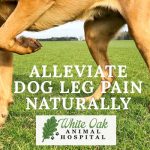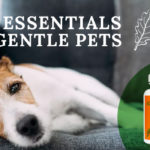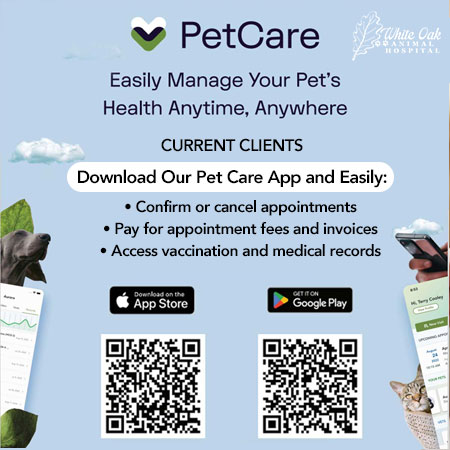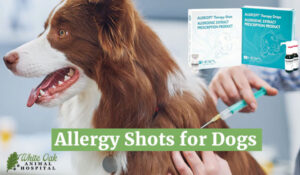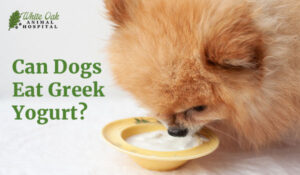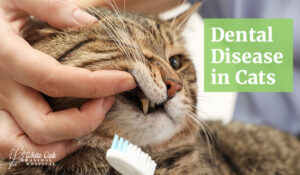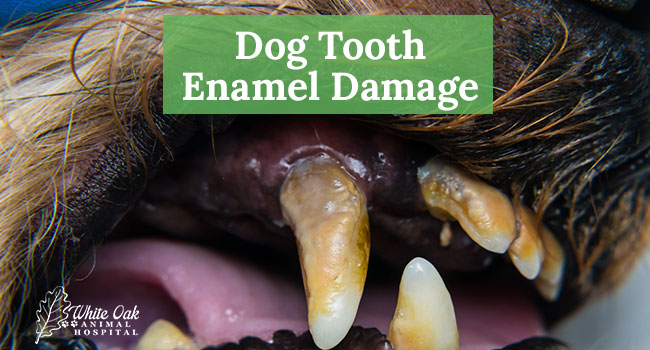
Dog tooth enamel damage is a significant concern that can lead to serious dental issues if not adequately addressed. Dental health is a crucial aspect of your dog’s overall well-being. Like humans, dogs rely on strong, healthy teeth for eating, playing, and maintaining a high quality of life. However, one area that often goes unnoticed by pet owners is the importance of protecting tooth enamel. Tooth enamel is the hard outer layer that shields the inner layers of the teeth from decay and damage. In dogs, once this enamel is damaged, it cannot regenerate, leading to potential pain, infection, and tooth loss.
Understanding tooth enamel and its role in your dog’s dental health is essential. Enamel is the first line of defense against various threats, such as plaque, tartar, and wear and tear from chewing. However, many factors can damage dog tooth enamel, including poor diet, lack of proper dental care, and inappropriate chew toys. Over time, enamel erosion can compromise your dog’s dental structure, causing discomfort and long-term health issues.
Protecting Your Dog’s Smile: 7 Proven Tips to Prevent Dog Tooth Enamel Damage
Choose the Right Chew Toys
 Chew toys play a significant role in your dog’s dental health. However, not all chew toys are created equal. Some toys, particularly those that are too hard or made from abrasive materials, can cause dog tooth enamel damage. When your dog chews on excessively hard toys, the pressure can lead to cracks or chips in the enamel. Over time, these minor damages accumulate, leading to more significant issues.
Chew toys play a significant role in your dog’s dental health. However, not all chew toys are created equal. Some toys, particularly those that are too hard or made from abrasive materials, can cause dog tooth enamel damage. When your dog chews on excessively hard toys, the pressure can lead to cracks or chips in the enamel. Over time, these minor damages accumulate, leading to more significant issues.
To avoid this, choosing chew toys that are safe and effective in promoting dental health is crucial. Look for toys made from rubber or softer materials designed to clean teeth without causing harm. These toys help reduce plaque and tartar buildup while being gentle on the enamel. Additionally, toys that balance durability and softness are ideal, as they satisfy your dog’s natural chewing instincts without risking damage to its teeth.
Always consider your dog’s size and chewing habits when selecting chew toys. Larger dogs or aggressive chewers may require more durable options, but ensuring these toys do not risk damaging the enamel is essential. By making informed choices, you can give your dog the benefits of chewing without the risk of tooth enamel damage.
Limit Acidic and Sugary Treats
 Diet plays a significant role in your dog’s teeth’ health, particularly in preventing tooth enamel damage. Acidic and sugary treats can accelerate enamel erosion, weaken teeth, and increase vulnerability to dental issues. When your dog consumes these treats, the acids produced can soften and wear down the enamel over time. This process, known as demineralization, makes the teeth more susceptible to decay and other dental problems.
Diet plays a significant role in your dog’s teeth’ health, particularly in preventing tooth enamel damage. Acidic and sugary treats can accelerate enamel erosion, weaken teeth, and increase vulnerability to dental issues. When your dog consumes these treats, the acids produced can soften and wear down the enamel over time. This process, known as demineralization, makes the teeth more susceptible to decay and other dental problems.
Limiting the intake of acidic and sugary treats is essential to protect your dog’s enamel. Instead, opt for healthier, safe, and beneficial alternatives for their dental health. For example, consider offering treats low in sugar and made from natural ingredients. Specialized dental treatments are also available designed to reduce plaque and strengthen enamel. These treats satisfy your dog’s snack craving and improve their overall dental well-being.
In addition to choosing the proper treats, it’s important to be mindful of your dog’s overall diet. Ensure their meals are balanced and do not contain excessive amounts of acidic or sugary ingredients. By making thoughtful dietary choices, you can significantly reduce the risk of dog tooth enamel damage and promote a healthier, stronger smile for your pet.
Regular Dental Cleanings
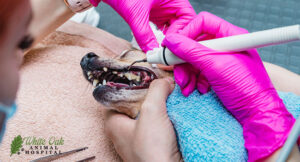 Regular dental cleanings are a cornerstone of preventing dog tooth enamel damage. Professional cleanings go beyond what daily brushing can achieve, removing plaque and tartar that can build up over time. This buildup is not just unsightly; it can lead to enamel erosion, making your dog’s teeth more vulnerable to damage.
Regular dental cleanings are a cornerstone of preventing dog tooth enamel damage. Professional cleanings go beyond what daily brushing can achieve, removing plaque and tartar that can build up over time. This buildup is not just unsightly; it can lead to enamel erosion, making your dog’s teeth more vulnerable to damage.
Scheduling regular dental cleanings with your veterinarian is one of the most effective ways to maintain your dog’s dental health. During these cleanings, the vet will thoroughly examine your dog’s teeth, identify any early signs of tooth enamel damage, and take steps to prevent further deterioration. The cleaning process includes scaling the teeth to remove plaque and tartar, polishing the teeth to smooth the enamel surface, and applying fluoride treatments to strengthen the enamel.
While professional cleanings are vital, they should complement—not replace—daily dental care routines at home. Regular brushing and dental chews can help maintain the results of professional cleanings and prevent the buildup of harmful substances that erode enamel. Combining regular dental cleanings with consistent home care protects your dog from tooth enamel damage and ensures their teeth remain healthy and strong.
Incorporate Dental-Friendly Foods Into Their Diet
Your dog’s diet is crucial in maintaining strong, healthy teeth and preventing dog tooth enamel damage. Certain foods naturally help clean teeth and strengthen enamel, making them valuable to your dog’s daily meals. Incorporating these foods into your dog’s diet can be a simple yet effective way to support their dental health.
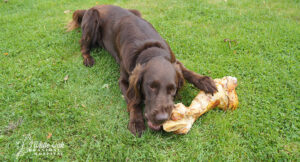 Foods high in calcium and phosphorus are particularly beneficial for maintaining strong enamel. These minerals help to remineralize the enamel, keeping it resilient against wear and tear. Examples of such foods include raw bones, which also have the added benefit of naturally scraping plaque from teeth. Additionally, fibrous vegetables like carrots and apples can act as natural toothbrushes, helping to clean teeth as your dog chews.
Foods high in calcium and phosphorus are particularly beneficial for maintaining strong enamel. These minerals help to remineralize the enamel, keeping it resilient against wear and tear. Examples of such foods include raw bones, which also have the added benefit of naturally scraping plaque from teeth. Additionally, fibrous vegetables like carrots and apples can act as natural toothbrushes, helping to clean teeth as your dog chews.
It’s also important to ensure your dog’s diet is well-balanced and does not include foods contributing to enamel erosion. Avoid feeding your dog table scraps or processed foods that are high in sugars and acids, as these can weaken the enamel over time. Focusing on a diet rich in dental-friendly foods can help prevent tooth enamel damage and support your dog’s overall health.
Brush Your Dog’s Teeth Regularly
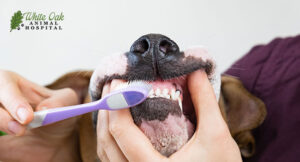 Brushing your dog’s teeth regularly is one of the most effective ways to prevent dog tooth enamel damage. Regular brushing helps to remove plaque and food particles that can lead to enamel erosion if left unchecked. While it might seem challenging, establishing a routine for brushing your dog’s teeth is crucial for their long-term dental health.
Brushing your dog’s teeth regularly is one of the most effective ways to prevent dog tooth enamel damage. Regular brushing helps to remove plaque and food particles that can lead to enamel erosion if left unchecked. While it might seem challenging, establishing a routine for brushing your dog’s teeth is crucial for their long-term dental health.
First, use a toothbrush specifically designed for dogs, as these brushes are softer and more suited to their mouth size. Pair this with toothpaste formulated for dogs, which is safe to ingest and often flavored to appeal to their tastes. Avoid using human toothpaste, as it contains ingredients that can harm dogs.
Begin brushing by lifting your dog’s lips and gently brushing the outer surfaces of the teeth in a circular motion. Focus on the back teeth, as these are more prone to plaque buildup. It’s important to be gentle, as aggressive brushing can damage the enamel. Aim to brush your dog’s teeth at least two to three times a week, but daily brushing is ideal for preventing plaque buildup and protecting enamel.
Over time, regular brushing will become a routine part of your dog’s life, helping prevent tooth enamel damage and maintain a healthy, beautiful smile.
Use Enamel-Safe Dental Products
Choosing the right dental products is essential in preventing dog tooth enamel damage. Many over-the-counter dental products contain harsh ingredients that can erode enamel over time, making your dog’s teeth more susceptible to decay and other dental issues. To protect your dog’s enamel, it’s important to select products that are specifically formulated to be safe for their teeth.
Enamel-safe toothpaste is a must-have for any dog owner concerned about their pet’s dental health. These toothpastes are designed to clean teeth effectively without causing abrasion or wearing down the enamel. In addition to toothpaste, consider using dental rinses formulated to reduce plaque and tartar while being gentle on the enamel.
There are also enamel-protective gels available that can be applied directly to your dog’s teeth. These gels create a protective barrier on the enamel, helping to prevent damage from acids and bacteria. Combined with regular brushing and professional cleanings, these products can significantly maintain your dog’s enamel health.
Choosing enamel-safe dental products can help prevent dog tooth enamel damage and ensure your dog’s teeth remain strong and healthy for years.
Monitor and Address Dental Health Early
Monitoring your dog’s dental health is key to preventing damage to its tooth enamel. Early detection of dental issues can significantly improve the long-term health of your dog’s teeth. Regularly checking your dog’s mouth for signs of enamel wear, discoloration, or sensitivity can help you catch problems before they become serious.
Signs of enamel damage may include yellowing of the teeth, increased sensitivity to touch or temperature, and visible chips or cracks in the teeth. If you notice any of these symptoms, it’s important to consult with your veterinarian as soon as possible. Early intervention can prevent further damage and protect the remaining enamel. 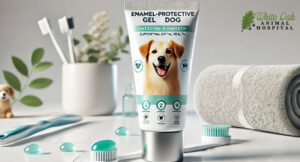
Regular dental checkups with your vet are also crucial. During these visits, your vet can assess your dog’s dental health, provide professional cleanings, and advise on maintaining strong enamel. By staying proactive and addressing dental health early, you can help prevent dog tooth enamel damage and ensure your dog enjoys a lifetime of healthy teeth.
Dental health is critical to your dog’s overall well-being, and safeguarding their tooth enamel is vital to maintaining a healthy, happy smile. Dog tooth enamel damage can lead to significant dental issues, including pain, infection, and tooth loss, affecting your pet’s quality of life. Following the proven tips in this article, you can take proactive steps to prevent enamel damage and ensure your dog enjoys strong, healthy teeth for years.
 At White Oak Animal Hospital, we recognize the importance of comprehensive dental care and offer integrative options far beyond standard treatments. Our experienced team, with over 28 years of expertise, is committed to providing the highest care for your pet’s dental needs. We proudly offer specialized services, including Traditional Chinese Veterinary Medicine (TCVM) and Telemedicine consultations, which are unavailable at many other clinics. This holistic approach allows us to tailor treatments to your dog’s unique health needs, offering a level of care that is both advanced and compassionate.
At White Oak Animal Hospital, we recognize the importance of comprehensive dental care and offer integrative options far beyond standard treatments. Our experienced team, with over 28 years of expertise, is committed to providing the highest care for your pet’s dental needs. We proudly offer specialized services, including Traditional Chinese Veterinary Medicine (TCVM) and Telemedicine consultations, which are unavailable at many other clinics. This holistic approach allows us to tailor treatments to your dog’s unique health needs, offering a level of care that is both advanced and compassionate.
If you are concerned about dog tooth enamel damage or need expert advice on preventing dental issues, we encourage you to visit White Oak Animal Hospital. Our dedicated team is here to help your furry friend maintain a beautiful and healthy smile, ensuring their dental health supports their overall well-being. Let us be your partner in providing the best possible care for your pet’s teeth and gums.
Frequently Asked Questions
How often should I brush my dog’s teeth to prevent enamel damage?
Brushing your dog’s teeth at least 2-3 times a week is recommended, but daily brushing is ideal. Regular brushing removes plaque and food particles that can damage enamel and other dental issues.
Can dogs recover from tooth enamel damage?
Unfortunately, once enamel is damaged, it cannot regenerate. However, proper dental care and professional treatments can prevent further damage and protect the remaining enamel.
What are the early signs of dog tooth enamel damage?
Early signs include yellowing of the teeth, increased sensitivity, and visible wear or chips in the enamel. If you notice these symptoms, it’s crucial to consult with a vet to prevent further deterioration.
Is it safe to use human toothpaste for my dog’s teeth?
No, human toothpaste contains ingredients like fluoride, which can be toxic to dogs if ingested. Always use toothpaste specifically formulated for dogs to ensure their safety and dental health.
Related Posts
-
Benefits Of Natural Herbs For Dog Dandruff
Does your pup have dog dandruff? Additionally, they may also have: Occasional dry, lusterless coat…
-
Learn How To Alleviate Dog Leg Pain Naturally
Dog arthritis is the top cause of chronic dog leg pain. Arthritis affects approximately 20%…
-
Learn How to Alleviate Dog Tremors Naturally
Dog tremors are sometimes mistaken for dog seizures. Consult your veterinarian to confirm whether your…
-
All Natural Herbs For When Your Dog is Lethargic
Firstly, if your dog is lethargic suddenly, consult your veterinarian right away. Lethargy may be…


